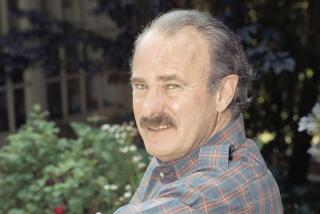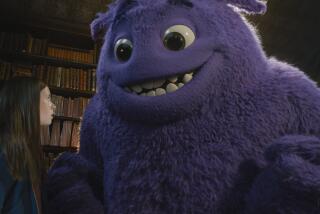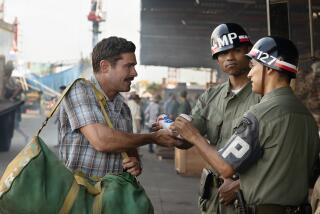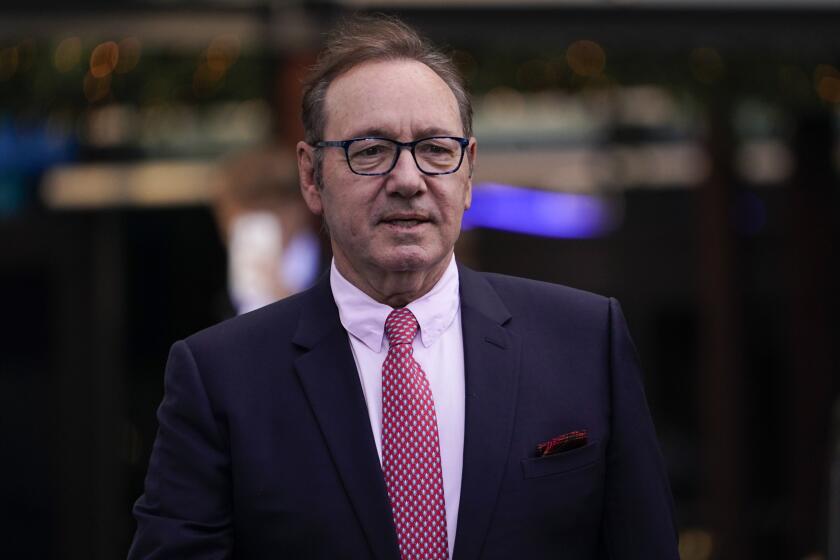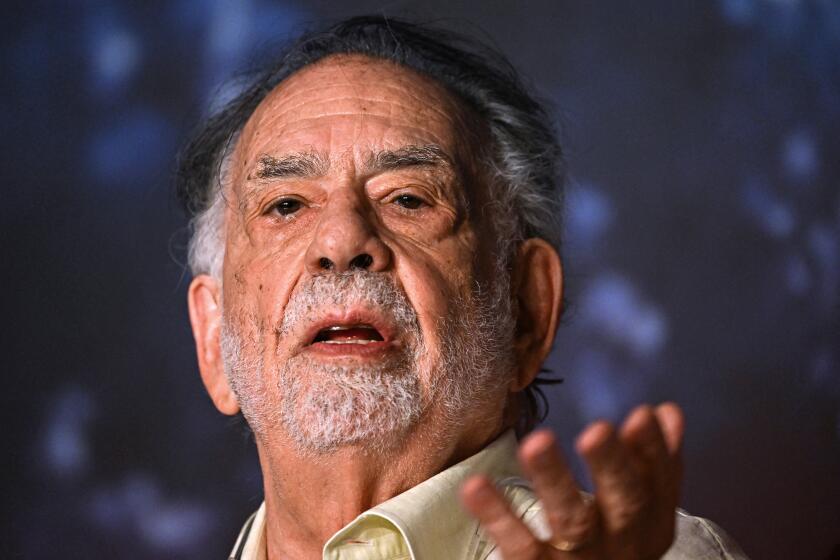‘Nice Guy’ Strives to Go Straight to the Source
Marty Humphreys of Thousand Oaks spent nearly three years producing an upcoming TV movie about Tailhook, the 1991 Navy scandal in which female officers were sexually assaulted at a gathering of naval aviators.
Humphreys, a veteran TV writer, was able to tap great sources in researching the story: For 21 years, she was a Navy wife, her husband Tom a naval aviator.
But she was not able to get the cooperation of Lt. Paula Coughlin, the central figure in the notorious incident. It was Coughlin who blew the whistle on the Navy, dooming her career but making her a hero to civilized society.
Humphreys made a movie about Coughlin without Coughlin’s help--something they can apparently do in Hollywood. But journalists are held to higher standards. Staff writer Vince Kowalick, who wrote this week’s Centerpiece on Humphreys’ quest to make the movie, tried to contact the reclusive Coughlin to get her comments.
Kowalick had heard stories of Coughlin being unpleasant with anyone wanting to talk about Tailhook.
Kowalick understood Coughlin’s hostility. “I can’t say that I blame her,” he said. “I read a pile of published stories about the Tailhook scandal and wondered what it must have been like for Coughlin to have lived through the ordeal. Along the way, I guess I formed a few assumptions: She hates reporters, she hates men, she hates life.”
Kowalick called Coughlin at her home in Virginia Beach, Va. “Frankly,” he said, “I expected nothing more than a terse ‘no comment’ at best or maybe even a ‘get out of my face, journalist pig.’ ”
But Kowalick found he was wrong about a lot of things. “I can’t say Coughlin was pleased to hear from me,” he said. “She let out a sigh, said she wasn’t interested in talking with any reporters and told me to contact her attorney.
“ ‘Look,’ I said. ‘I don’t mean to pester you. I just called because I wanted to give you a chance to comment.’ ”
Maybe it was the sincerity in Kowalick’s voice that moved Coughlin, but she softened. “She said she would help me out by giving me a comment for my story,” Kowalick said. “It wasn’t much more than a ‘no comment,’ but it was better than nothing. At least she was polite about it and I told her that.”
Kowalick and Coughlin wound up chatting for about 10 minutes. “The conversation flowed from my job, the newspaper business, even the Stanley Cup playoffs,” he said. “She said she didn’t dislike reporters, only ‘some reporters.’ She told me I seemed like a nice guy.”
More to Read
Only good movies
Get the Indie Focus newsletter, Mark Olsen's weekly guide to the world of cinema.
You may occasionally receive promotional content from the Los Angeles Times.
